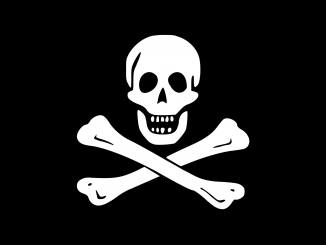
[ad_1]
- Verizon and other major Internet service providers now stand behind Cox Communications in a piracy matter.
- Cox’s appeal to the U.S. Supreme Court tackles a sensitive topic – whether ISPs can be held liable for internet piracy.
- The companies supporting Cox highlight the “extortionate pressure” the current ruling places on them.
Several major Internet Service Providers (ISPs), including Verizon, Frontier, Altice, and Lumen Technologies, have officially backed Cox Communications in its appeal to the U.S. Supreme Court. The appeal focuses on willfulness of infringement and service provider liability.
The case challenges a pivotal Fourth Circuit ruling that held Cox liable for the copyright infringements perpetrated by its subscribers, imposing a staggering $1 billion jury verdict in favor of prominent record labels like Sony and Universal.
The controversy centers on ISPs' liability regarding internet piracy. The Fourth Circuit concluded that Cox “materially contributed” to its subscribers' illegal activities by failing to terminate their accounts despite their awareness of infringement.
According to Cox, this interpretation excessively stretches service provider liability and establishes a harsh secondary-liability framework, prompting the company's appeal to the Supreme Court.
Cox’s appeal asks whether a service provider can be held liable simply for knowing about infringing activities and not terminating access without directly fostering or intending to promote infringement. It also raises the question of whether mere knowledge of copyright infringements constitutes willfulness, warranting maximum statutory damages.
The ISPs supporting Cox highlight the “extortionate pressure” the current ruling places on them, potentially leading to widespread internet terminations that could affect innocent users. They argue that the decision threatens the future of the internet by exposing service providers to massive liabilities based solely on accusations often reliant on automated systems prone to errors.
Furthermore, the ISPs draw parallels to a recent Supreme Court decision in the ___ vs. Taamneh case, wherein the Court ruled that social media companies cannot be held liable for terrorist activities unless they “consciously and culpably” participated.
The ISPs maintain that Cox’s inaction does not equate to culpable conduct, thereby challenging the Fourth Circuit’s stance.
Boston College Law School Professor Alfred Yen has also filed a brief supporting Cox's petition. Professor Yen critiques the Fourth Circuit’s interpretation of contributory copyright infringement law, arguing that providing a service with knowledge of potential infringement does not inherently imply culpable intent. He warns of the broad implications this logic could have, potentially dragging various service providers into similar legal battles.
This case's outcome could significantly reshape the landscape of internet service provision and liability in the U.S., influencing how ISPs manage piracy allegations and impacting the broader dynamics of copyright enforcement. The Supreme Court’s decision will be pivotal in defining the responsibilities and liabilities of ISPs concerning user activities on their networks.
In other news, anti-piracy organization FACT and Sky UK Limited teamed up for another sweep across the UK, targeting pirate IPTV operators who used altered Firestick devices. As a result, three people were arrested, and another 40 were let off with a legal warning.
[ad_2]
Written by ODD Balls





Be the first to comment